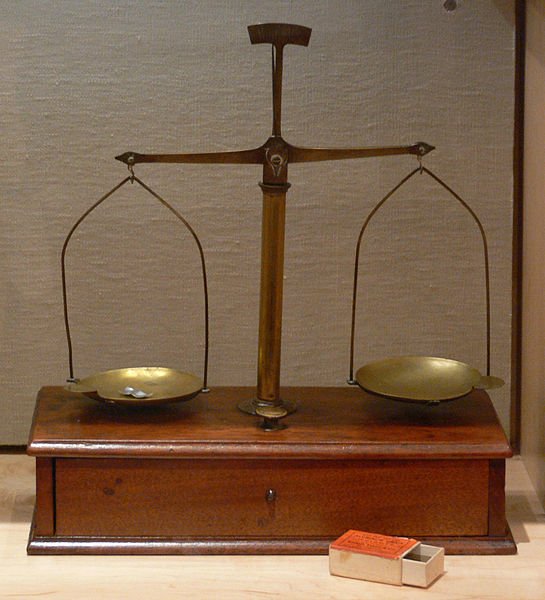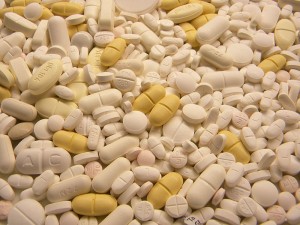This week, an FDA panel unanimously voted to revoke its approval of Avastin (bevacizumab) for breast cancer. The decision evoked cheers from some groups and jeers from others. At least one group derided the decision as the work of a “death panel.”
Initially hailed as a wonder drug, Avastin is a monoclonal antibody first approved for use against lung and colon cancer. Its maker, Roche (under its Genentech division), hoped that it would prove similarly useful for breast cancer. The FDA granted provisional approval of the drug for metastatic breast cancer in 2008 under the accelerated approval program.
But in an unusual move, the drug was granted this accelerated approval based on what researchers call a “surrogate” endpoint. Instead of measuring overall survival rates, Roche submitted data showing that Avastin slowed “progression-free survival.” What that means is that the drug slowed the time between new MRI findings, but it did not improve survival times. To repeat — the drug has never been shown to extend the lives of breast cancer patients. Still, the hope remained that the drug could nonetheless improve quality of life in people with breast cancer.
Now that a few years have passed, researchers have more data, and the new numbers simply do not live up to the hope. Follow-up trials of Avastin failed to replicate the progression free survival benefit seen in the initial study, and patients who received Avastin in conjunction with other chemotherapy drugs did not live longer than those who didn’t. “In fact, the overall survival appeared to be shorter in women who took the drug,” wrote J. Leonard Lichtenfeld, deputy chief medical officer for the the American Cancer Society in his Dr. Len’s cancer blog.
Given this evidence, why did some cancer patients and their family members erupt in shouts, calling out panelists for their decision and lobbying for access to a drug that science showed was ineffective?
These patients aren’t crazy and I think it’s wrong to dismiss them as scientifically illiterate or delusional. They are human beings facing a very scary terminal diagnosis, and they’re clinging to the one sliver of hope they’ve managed to get their arms around.
The encouraging truth is, a few women who received Avastin have done well. But the hard reality is, there’s no evidence that their success is due to Avastin and not the other drugs they received. (Avastin is used in conjunction with chemotherapy.) Try as they did, Avastin’s makers could not point to a single group of special responders. As much as scientists know about cancer, there’s still much that remains a mystery and one of these mysteries is why some people beat the odds.
Avastin provided hope where there are no good options, and hope is a delicate thing. One FDA committee member apparently implied that doctors who led patients to believe that Avastin was responsible for their success were doing these patients a disservice. I agree wholeheartedly, and yet I understand their impulse to prescribe hope, however remote.
It would be easy to assume that Roche’s push to keep Avastin alive for breast cancer patients is motivated by profits, and it’s always wise to follow the money. There was a lot of it at stake in this decision. According to Pharmalot, Roche and its Genentech unit “stand to lose an estimated $1 billion in annual sales.” Medicare will continue paying for Avastin for breast cancer patients, at least for now. Since the drug is still approved for other cancers, it will remain available for off-label use in breast cancer, but insurers may drop coverage, and that could leave many breast cancer patients without access.
My first job out of college was at a Boulder-based biotech company, NeXagen (then NeXstar). Founded by Larry Gold, the company pursued drug discovery. Avastin wasn’t a NeXagen drug, but there’s one memory of my time at NeXaWorld (as we worker bees affectionately called it) that has stuck with me and seems relevant here.
At a company meeting one day, our CEO, Pat Mahaffy, stood up and read a letter — a desperate, rambling plea penned by an AIDS patient. (Our company was pursuing a drug for that disease.) The exact words escape me now, but gist of it was clear — Please continue this important work. My life depends on it.
I know I was not the only one who felt the weight of those words. Mahaffy posted the handwritten letter on a bulletin board in a common area and I remember passing by it often. It’s fair to say that everyone in that building wanted to discover a curative drug — for cancer and AIDS and every other scourge that might cut short a life.
It was the gold rush days of the biotech world and we all wanted riches and fame, but it was about more than money. It’s human nature— you can’t work on a project day in and day out and not become vested in the outcome. We desperately wanted our drugs to work. Money or no money, no one wants to pour time and effort into a lost cause, especially when that cause is someone’s life.
While I was at the company, we never did bring a drug to market (despite the t-shirts that personnel handed out one year that read something like, “Drug Discovery: Look What We’ve Created!”) I left to join a genomics lab right around the time the company was bought by Gilead, but I kept the lessons that I learned there.
Including something else that one of the company’s top executives said, shortly before I left the company. It was during some sort of blah, blah regulatory meeting and the issue of drug approvals came up. One suit remarked that we needed to get the FDA out of the way of drug approvals. No, this exec said. Those rules protect us. If ineffective, or, worse yet, harmful drugs reach the market, everyone loses.
Images via Wikimedia.



Avastin is an expensive placebo? I’ve heard that if the patient thinks the placebo costs more, it’s more effective. They should be light blue in color, unless the patient is male, and lives in Italy. Placebo is very powerful, and we should be using it to maximum advantage. It’s safe – after all, it’s the most tested drug. And it’s effective – it is the standard by which all other drugs are tested.
OK, i’ll stop now.